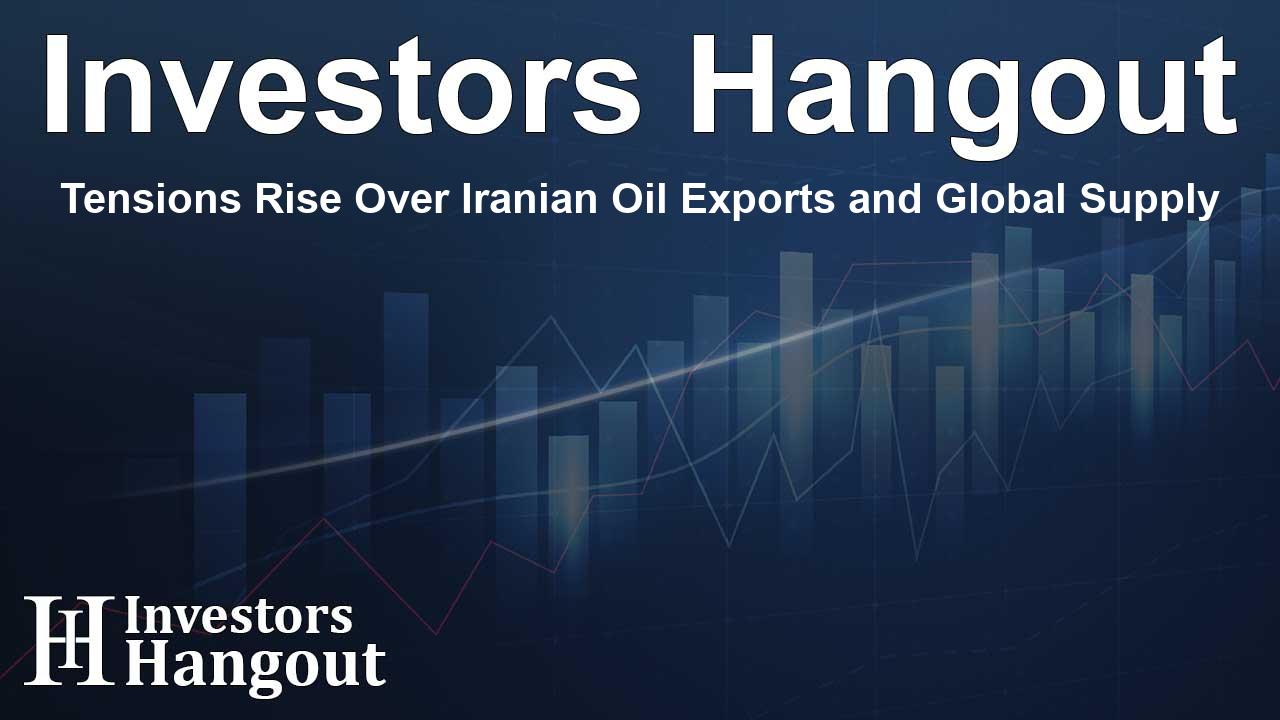Tensions Rise Over Iranian Oil Exports and Global Supply

Understanding the Current Landscape of Iranian Oil Exports
As tensions escalate following recent missile attacks by Iran, oil traders are increasingly concerned about disruptions to the flow of crude in the Middle East. The Kharg Island export terminal, which serves as a vital hub for Iranian oil exports, has emerged as a primary concern. Should this key terminal come under threat, it could significantly impact oil markets worldwide.
The Importance of Kharg Island
Kharg Island is critical for Iran, as it is responsible for loading most of the country's crude oil exports. Matt Smith, an oil analyst, points out that any targeted action on this terminal would have devastating consequences for Iran's oil export capabilities. With the potential to cripple operations at this key point, the repercussions could be felt across the global oil supply.
Potential Consequences of Military Escalation
Should military actions target Kharg Island, experts predict a dramatic rise in oil prices. According to Gerard Filitti, a senior counsel at the Lawfare Project, an attack on this terminal could lead to a sudden spike in oil prices, potentially exceeding 10 percent. Furthermore, repairs would likely span months, compounding issues in an already fragile oil market.
Iran's Oil Production Capacity
Iran currently boasts an oil production rate of approximately 2.82 million barrels per day, with projections suggesting a goal of reaching 3.9 million barrels per day by 2025. This escalation is crucial for Iran, as its economy heavily relies on these exports. The alarming scenario of a strike on Kharg Island could jeopardize their ambitions and have long-lasting repercussions.
The Risks of Disruption Through the Strait of Hormuz
The situation surrounding the Strait of Hormuz adds another layer of concern. This critical transit point has historically played a pivotal role in global oil transportation, averaging 21 million barrels per day in 2022. Disruption to this chokepoint would not only affect oil supply but could also lead to significant geopolitical instability in the region.
Global Reactions to Potential Oil Supply Disruptions
Market analysts are closely monitoring these developments. Should a major incident occur, it is expected that other OPEC nations may ramp up production to buffer any shortfalls from Iran's oil supply. This points to a tightly interconnected global oil market, sensitive to shifts in the Middle East dynamic. The concern remains palpable, with fluctuations in oil prices likely to follow any event involving Iranian oil infrastructure.
Current Market Observations and Future Outlook
The current trajectory of oil prices indicates that traders are already factoring in the possibility of disruptions, with prices reacting to ongoing reports and geopolitical developments. Recent missile attacks and military escalations highlight the fragile balance within the region, amplifying concerns for traders and investors alike.
Investment Implications and Market Strategies
Investors are advised to remain vigilant as they navigate these uncertain waters. With the potential for substantial volatility in oil prices, understanding the implications of these geopolitical events on market dynamics is crucial. Whether it's through monitoring the situation around Kharg Island or tracking developments in Iranian oil capacity, a proactive approach will be vital in addressing the challenges ahead.
Frequently Asked Questions
What is the significance of Kharg Island in Iran's oil exports?
Kharg Island is the main terminal for loading Iranian crude exports, making it critical for the country’s oil trade.
How might military actions affect global oil prices?
Military actions targeting oil infrastructure could lead to immediate price spikes, significantly impacting the global market.
What are the production forecasts for Iran's oil?
Iran aims to increase its oil production capacity to 3.9 million barrels per day by 2025.
Why is the Strait of Hormuz important for oil supply?
The Strait of Hormuz is a major transit route for global oil supply, handling 21 million barrels per day in 2022.
How should investors respond to current market conditions?
Investors should closely monitor geopolitical developments, as they can affect oil prices and market stability significantly.
About Investors Hangout
Investors Hangout is a leading online stock forum for financial discussion and learning, offering a wide range of free tools and resources. It draws in traders of all levels, who exchange market knowledge, investigate trading tactics, and keep an eye on industry developments in real time. Featuring financial articles, stock message boards, quotes, charts, company profiles, and live news updates. Through cooperative learning and a wealth of informational resources, it helps users from novices creating their first portfolios to experts honing their techniques. Join Investors Hangout today: https://investorshangout.com/
Disclaimer: The content of this article is solely for general informational purposes only; it does not represent legal, financial, or investment advice. Investors Hangout does not offer financial advice; the author is not a licensed financial advisor. Consult a qualified advisor before making any financial or investment decisions based on this article. The author's interpretation of publicly available data shapes the opinions presented here; as a result, they should not be taken as advice to purchase, sell, or hold any securities mentioned or any other investments. The author does not guarantee the accuracy, completeness, or timeliness of any material, providing it "as is." Information and market conditions may change; past performance is not indicative of future outcomes. If any of the material offered here is inaccurate, please contact us for corrections.